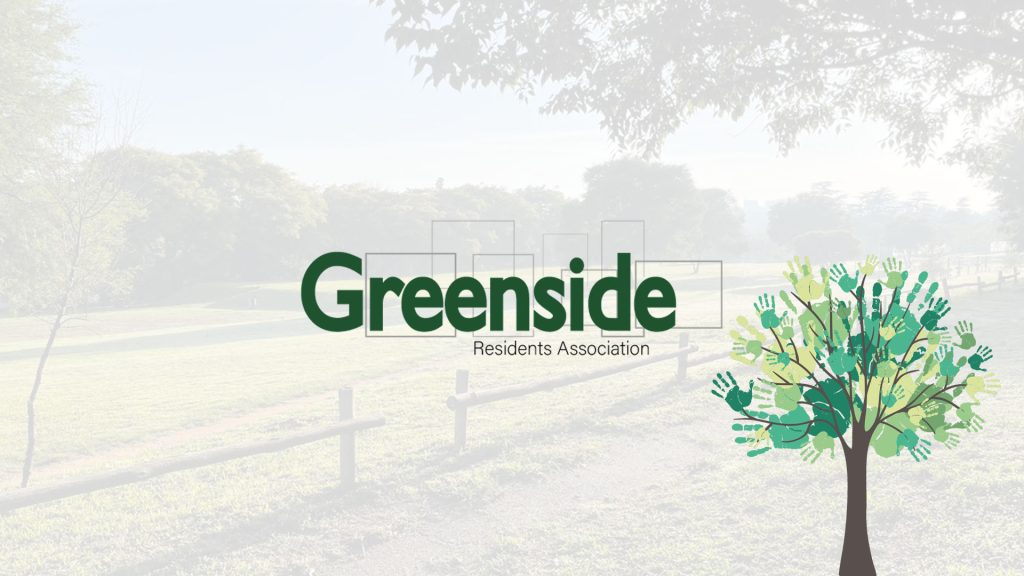Heritage and building, News, Planning and compliance
Know your rights as a neighbour
Thanks to our Councillor for Ward 87, Bridget Steer for this information
If you have nice neighbours you are very lucky, however in reality some are not very pleasant and can make your life miserable at times.
It is worth making the time getting to know those who live next to you, as neighbours can play an important role in our lives and our community, and it’s always a good thing to keep in mind that you are a neighbour too.
With the increasing trend to fit as many houses into developments and gated areas as possible, we are also seeing more instances of larger stands being subdivided and homes being built closer together.
The problem however that arises with this is the increasing conflict that may occur between neighbours.
If you are a property owner you are entitled to the free use and enjoyment of your home. You may convert or alter your property provided that in doing so, you stay within the limits of local authority regulations and that you do not interfere with the legal rights of your neighbours.
In our modern society disputes between neighbours can arise over a number of issues. The most common disputes that arise are usually over:
Encroachment
Encroachment is where you have erected a structure on your property and part of the structure is on a neighbouring property.
This is trespassing and the encroaching land owner is legally responsible. Structures referred to include any building, driveway, path, retaining wall, fence, trees or any other improvements.
Buildings
When views are blocked by new building plans, neighbours do have some rights.
In the case of over-coverage, unsightly buildings, inappropriate use of buildings and loss of views, plans can still be challenged and demolition ordered, even after the building has been erected.
Boundary walls and Fences
With boundary walls and fences, the generally accepted rule is that it is the joint property of the neighbours who are both equally liable for the walls/fences maintenance and repairs.
However neither can make any changes to it without the consent of the other. Boundary encroachment is seen as the most common dispute, this can cover anything from tree trunks and branches encroaching on a neighbour’s property, roots uplifting neighbours pavement or at times walls or leaves falling into the neighbour’s pool.
If your neighbour is not prepared to do anything and you don’t want to live with overhanging branches from your neighbour’s trees, you should ask him or her to cut them away, and to remove the cuttings from your side of the fence.
If he or she refuses to do this, you can cut the branches back to the property line – however you’re not allowed to keep the cuttings unless your neighbour refuses to take them.
If he or she refuses to take them you’d be within your rights to dispose of them, and to recover the costs of the disposal from the neighbour. Should none of these work, you could apply for an interdict to compel the neighbour to remove the branches.
Noise
Having to deal with noisy neighbours is a common and most popular complaint.
The disturbances can range from a variety of sources including barking dogs, loud music, arguing and shouting, banging doors or drilling.
South African law makes a distinction between ‘Disturbing Noise’ – which is “objective and is defined as a scientifically measurable noise level,” and ‘Noise Nuisance,’ which is “a subjective measure and is defined as any noise that disturbs or impairs or may disturb or impair the convenience or peace of any person.”
What are the rules?
Disturbing Noise in the urban environment is usually governed by municipal by-laws. An example of this kind of noise would be loud music.
Music is generally tolerated until 10pm on a Friday and/or Saturday evening before you can take steps. The urban myth says you can make noise until 10pm on a week night and 12pm on a weekend but, in actual fact most municipalities have by-laws in place that focus on the number of decibels rendered rather than the actual time frame in which noise is made.
Noise Nuisance is more subjective and usually happens over a longer period of time. It’s defined as noise that “disturbs or impairs or may disturb or impair the convenience or peace of any person, this could include any of the following:
dogs that bark incessantly;
playing a musical instrument or operating a television set loudly;
operating machinery or power tools;
shouting and talking loudly;
operating a vehicle that causes a noise;
driving a vehicle on a public road in a manner that causes a noise nuisance;
the discharge of fireworks in a residential area causing noise nuisance.
Noise Nuisance is illegal at all times and is enforceable at any time of the day.
Dealing with the problem:
The most practical and cost effective way to deal with a noise nuisance would be to approach your neighbour directly and politely and tell them of the problem.
If you are unable to reach an amicable solution, you should consider appointing a mediator to achieve resolution to the dispute.
As with most legal matters it is sensible to try all avenues to resolve a matter before a court is approached. Should you have exhausted all of the above methods to no avail then you are able to take the following legal steps:
The first option is to lay a complaint with your local authority by way of a written statement. Law enforcement officials will investigate the problem to see how serious the situation is.
If necessary, they can instruct the reduction of the noise and if the offenders don’t comply, they can issue a fine, and in extreme cases even confiscate the equipment causing the noise nuisance.
If the above fails and the offender persist it is then possible to approach the court.
The affected party has two options in this regard:
Apply for an interdict to prevent your neighbour from causing the specific noise.
Sue your neighbour for damages suffered as a result of excessive noise caused by him/her.
Legal issues:
An interdict can be granted if the neighbour’s conduct is unlawful / threatens to be unlawful.
Be very specific about what type of noise is being complained of. The courts generally take the following factors into account when determining if the actions are unlawful, the type of noise; the degree of persistence; where the noise occurs; the times when the noise is heard; all efforts made to resolve the matter.
The following will have to be proven:
The noise has negatively affected your quality of life
your health
your comfort
your general well-being
If an interdict is issued and the neighbour still persists with the unlawful actions, the neighbour may be found guilty of contempt of court, in which case the court may impose a fine or alternatively imprisonment in serious cases.
It doesn’t matter what the type of nuisance, for it to be subject to interference and relief by courts or a local authority, it must be substantial and continuous and one must bear in mind that your neighbour enjoys the same rights as you do to enjoy the use of his property.
The legal principal is that “a man is allowed to have free use and enjoyment of his property, provided that in doing so, he does not infringe on the rights of his neighbour.” Our judges have adopted the view that “some discomfort, inconvenience or annoyance from the use of neighbouring property needs be endured”.
NOISE NUISANCE Please follow the procedures on the document to report noise nuisances. https://drive.google.com/file/d/1hCWKq-hbYeh-HXzBL6r8BUfAdWiryBW2/view?usp=sharing Contact person is Ashendri Reddy – AshendriR@joburg.org.za
Peaceful neighbour, peaceful life
There are many types of neighbours and different kinds of disputes, but one thing we all agree on is that a polite but direct discussion about any issue can often and will most likely resolve the problem.
Having neighbours has its own advantage and disadvantage however you will find that the advantages of having neighbours are more than the disadvantages. Such as having someone with an extra pair of eyes on your property when you are away, the famous ‘cup of sugar’ in case of in emergency – whether it be a quick jumpstart to a flat battery or a trip to the hospital in the case of bigger emergencies.
Even if it is merely a friend to enjoy a rugby game and braai with on a Saturday – neighbours could potentially become your best friends.
After all, your home is your most valuable asset and it is important to ensure that you get along with your neighbours and that you can return home to a harmonious environment with no conflict at the end of each day, so always be considerate and lodging a complaint, take a moment to reflect on situations where you might also have been or could be on the other side of the fence.
Kind regards
Bridget Steer | Ward Councillor | City of Johannesburg, Ward 87
Mobile – 0836040404
Twitter – @Blouix
Facebook – Ward 87 Johannesburg – Cllr Bridget Steer
You are encouraged to contact the City of Johannesburg directly to assist if you haven’t already:

